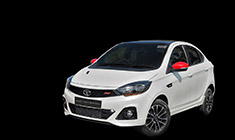News
Ashok Leyland and Israel's Phinergy to develop electric CV
Ashok Leyland and Phinergy of Israel have signed a Letter of Intent (LoI) to develop electric commercial vehicles (CVs). Both companies will work towards the development of solutions for high-energy applications in the CV segment.
Phinergy has developed aluminium-air batteries that produce energy by combining aluminium, oxygen and water. Oxygen from the ambient air reacts with the aluminium metal to produce electricity. This metal-air system is significantly lighter and has a higher energy density than lithium-ion batteries. Total range is upto eight times that of lithium-ion batteries and comparable to Internal Combustion Engines (ICE). However, these are non-rechargeable and the only way to reuse them is to replace the aluminium anode. It is one of the reasons why aluminium-air batteries are more expensive than conventional batteries and have been mostly used for military applications. Phinergy now plans to adapt its technology to meet the requirements of CVs in India.
According to S.A. Sundaresan, Ashok Leyland's head of eMobility Tech, the company plans to build the first prototypes in the next few months. Trial pilots will be built on different platforms to better adapt the Phinergy's battery systems to various commercial applications.
In November 2017, Tesla had unveiled its first electric truck. The truck is powered by 4 electric motors that propel it from 0-100 km/h in 20 seconds with a full load of over 36 tonnes. It is claimed that when fully loaded, the truck can maintain a steady speed of 105 km/h on a 5% grade. Maximum range with a full load is claimed to be 480 km or 800 km depending on the battery capacity. The Tesla truck is likely to enter production in 2019.


















